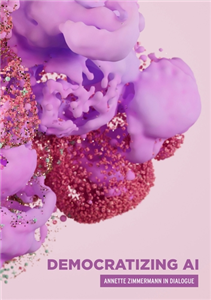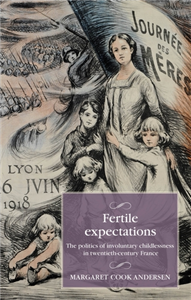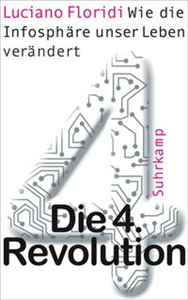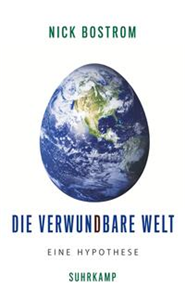Your Search Results
-
 Trusted Partner
Trusted Partner
Insel Verlag Anton Kippenberg GmbH & Co. KG
Herzlich willkommen bei der Suhrkamp Verlagsgruppe. Zu dieser gehören u. a. der Suhrkamp Verlag, der Insel Verlag mit dem Verlag der Weltreligionen, sowie der Jüdische Verlag.
View Rights Portal
-
Promoted Content
-
Promoted ContentComputing & ITMay 2026
Democratizing AI
by Annette Zimmermann
Democratizing AI offers a powerful rethinking of how artificial intelligence should be governed. Challenging the dominance of tech elites in shaping AI's future, Zimmermann argues that AI deployment is a political act-one that must be subject to democratic control. She proposes a practical "playbook" for reclaiming agenda-setting power through civic participation, public ownership, and institutional reform. Engaging with leading critics, Zimmermann defends a risk-sensitive proceduralist approach while acknowledging the deeper structural challenges posed by capitalism, inequality, and democratic fatigue. This book is a call to action: to resist learned helplessness, confront techno-authoritarianism, and shape AI's trajectory in line with democratic values. Thoughtful, urgent, and visionary, the book is essential reading for anyone concerned with the future of technology and democracy.
-
 Trusted Partner
July 2011
Trusted Partner
July 2011Macht euch keine Illusionen über mich
Der verbotene Blog
by Weiwei, Ai / Herausgeber Ambrozy, Lee
-
 Trusted Partner
Humanities & Social SciencesMay 2025
Trusted Partner
Humanities & Social SciencesMay 2025Fertile expectations
The politics of involuntary childlessness in twentieth-century France
by Margaret Cook Andersen
An engaging history of motherhood, demography, and infertility in twentieth-century France, this book explores fraught political and cultural meanings attached to the notion of an "ideal" family size. When statistics revealed a sustained drop in France's birthrate, pronatalist activists pushed for financial benefits, propaganda, and punitive measures to counter declining fertility. Situating infertility within this history, the author details innovations in fertility medicine, cultural awareness of artificial insemination, and changing laws on child adoption. These practices offered new ways of responding to infertility and formed part of a growing expectation of being able to control one's fertility and family size. This book presents the political and cultural context for understanding why private questions about when to start a family, how many children to have, and how to cope with involuntary childlessness, evolved and became part of state demographic policies.
-
 Trusted Partner
Trusted Partner
-
 Trusted Partner
Humanities & Social SciencesMarch 2026
Trusted Partner
Humanities & Social SciencesMarch 2026Artificial Intelligence and international security
Redefining arms races and contemporary warfare
by Arshin Adib-Moghaddam, Alena Vieira, Mohammad Eslami
As artificial intelligence continues to transform modern warfare, the rapid development of AI-driven weaponry presents profound ethical, legal, and security challenges. Artificial Intelligence and International Security: Redefining Arms Races and Contemporary Warfare offers a critical examination of this emerging arms race, exploring issues of arms control, international law, diplomacy, and long-term security. Bringing together expert perspectives, this volume assesses the risks and implications of autonomous weapon systems while proposing solutions to ensure ethical AI deployment. Through a comprehensive analysis of this urgent issue, it seeks to contribute to global debates and inform policies that foster peace, stability, and the responsible use of AI in warfare.
-
 Trusted Partner
July 2025
Trusted Partner
July 2025TOP 60 Pitfalls in Consultation and Communication
Rx and OTC
by Christiane Weber, Christian Schulz
Forgetting to include billing details for artificial insemination on a prescription, overlooking critical usage instructions for a fentanyl patch or cutting someone off mid-sentence? No need to fall into these traps! This book is a go-to guide for avoiding the common pitfalls of everyday pharmacy practice. From handling the first prescription to ensuring effective communication at the counter – this guide covers 60 common and sensitive issues, presented concisely according to the Pareto principle. • Avoiding common errors – from unclear prescriptions and OTC requests to communication missteps and billing mistakes, this guide highlights the key issues. • The right advice – concise case studies, dos and don‘ts, and communication tips demonstrate best practices that you can apply immediately. • Want to go deeper? Professional insights for situations that require more than just the basics. Master the TOP 60 and answer 80% of customer questions with confidence! Target group: Pharmacy interns, pharmaceutical technicians, pharmacists, returnees
-
 Trusted Partner
Trusted Partner
SEX CULTURE
What is sex? Or: why don't we just let it be?
by Bettina Stangneth
Above all else, and despite all the enlightenment of the age, sex in the 21st century seems to be a problem. Abuse, MeToo, human trafficking, circumcision, role-playing, body cult... But if sex is a mere abyss for modern humans, then why not just let it be? We are the first generation that could actually do it without endangering the survival of the species. And voices are getting louder that once again call for abstinence in a supposedly over-sexualised society. Artificial insemination and artificially intelligent technology for the safe removal of instincts should finally pacify what humans cannot control: instinctive nature. Sex is not the epitome of our animal nature. Every attempt to control the animal in us, either by taming it or by freeing it from tamers in a sexual revolution, inevitably misses the point. Bettina Stangneth asks the quite simple question: what is sex? If every culture of prohibition has failed so far, clearer ideas are obviously needed. Even if we prefer to ignore it, attempts to establish a culture through desire instead of the cultivation of desire have been around for a long time. After all, if you don't want to learn to talk positively about sex, you can't talk meaningfully about coercion and violence.
-
 Trusted Partner
Trusted Partner
-
 Trusted Partner
Business, Economics & LawOctober 2020
Trusted Partner
Business, Economics & LawOctober 2020Design Thinking Navigator
Kartenset zur kreativen Projektarbeit
by Mayer, Lena; Osann, Isabell; Szymanski, Caroline; Taheri, Mana
Design Thinking: Solve problems together, user-centered and iterative, develop innovations and have fun doing so! - Practical cards for innovation project work with change of perspective- Consistently customer-oriented and iterative- Targeted use of the maps in project planning and implementation with Design Thinking- Pragmatic, compact and wonderfully descriptive- Suitable for the most diverse questions or problems- With folding poster for targeted use of maps in project planning and decorative at the workplace- From the authors "Design Thinking Quick Start
-
 Trusted Partner
Trusted Partner
-
 Trusted Partner
August 2024
Trusted Partner
August 2024The Handbook of Data Science and AI
Generate Value from Data with Machine Learning and Data Analytics
by Munro, Katherine; Papp, Stefan; Toth, Zoltan; Weidinger, Wolfgang; Nikolic, Danko; Antosova Vesela, Barbora; Bruckmüller, Karin; Cadonna, Annalisa; Eder, Jana; Gorzala, Jeannette; Hahn, Gerald A.; Langs, Georg; Licandro, Roxane; Mata, Christian; McIntyre, Sean; Meir-Huber, Mario; Móra, György; Pasieska, Manuel; Rugli, Victoria; Wazir, Rania; Zauner, Günther
-
 Trusted Partner
Trusted Partner
-
 Trusted Partner
May 2002
Trusted Partner
May 2002Die Technologiefalle
Essays | Vom großen Vordenker und Kritiker der Künstlichen Intelligenz
by Stanisław Lem, Albrecht Lempp, Friedrich Griese, Jerzy Jarzebski
In Die Technologiefalle unterzieht der polnische Zukunftsforscher und Science-Fiction-Autor Stanisław Lem die technische Entwicklung, die Biotechnologie und Gentechnik, die Informationstechnologie und die sogenannte Künstliche Intelligenz einer strengen Prüfung. Das, was er in seinem umfangreichen Werk in phantastischer Formulierung vorweggenommen hat, erweist sich als verblüffend aktuell, vieles hat sich bewahrheitet.Sein Fortschrittsoptimismus von damals ist jedoch gedämpft: Lem betont die ethische Dimension unseres kollektiven Handelns. Als Paradigma, an das alles Menschengemachte nicht heranreicht, erscheint die natürliche Evolution. In manchen aktuellen Ausformungen der technischen Entwicklung sieht Lem einen Moralverlust. Auch seine eigenen Projektionen stellt er unter das Postulat der Menschlichkeit, und er läßt sich im Zeitalter postmoderner Beliebigkeit seinen moralischen Ernst nicht abkaufen.Stanisław Lem, 1926 in Lwów geboren, starb am 27. März 2006 in Kraków.
-
 Trusted Partner
April 2021
Trusted Partner
April 2021Die Kunst der Zukunft
Über den Traum von der kreativen Maschine
by Hanno Rauterberg
Computer erobern die Kunst: Sie malen wie Rembrandt, komponieren wie Bach, sie schreiben Romane und Gedichte. Geht es nach den Digitalkonzernen, ist das erst der Anfang. Künstliche Kreativität heißt das neue Leitziel: Aus Maschinen sollen Künstler werden, so selbstbestimmt und geistvoll wie der Mensch.Hanno Rauterberg schildert in seinem Essay, mit welchem Nachdruck diese Kunst der Zukunft entwickelt wird. Und er fragt nach den Konsequenzen des bevorstehenden Epochenwandels: Wie wird sich das Selbstbild des Menschen verändern? Und was sagt es über eine Gesellschaft aus, wenn sie von Computern nicht nur Logik erwartet, sondern auch Metaphysik, Wahrheit und Transzendenz? Wird der Algorithmus zum neuen Schöpfergott – und Politik damit überflüssig?
-
 Trusted Partner
October 1985
Trusted Partner
October 1985Altruizin und andere kybernetische Beglückungen
Der Kyberiade zweiter Teil | Vom großen Vordenker und Kritiker der Künstlichen Intelligenz
by Stanisław Lem, Daniel Mróz, Jens Reuter, Franz Rottensteiner
Um verschiede Formen von Beglückung, ja um nichts weniger als um die Konstruktion des Glücks geht es in diesen drei Erzählungen vornehmlich. König Genius, oft von Melancholie und Selbstabscheu geplagt, vermag nur noch in ungewöhnlichen Geschichten Trost finden. Darum bestellt er sich beim großen Konstrukteur Trurl gleich drei Erzählmaschinen, die ihm die Zeit vertreiben sollen. In »Altruizin« und »Experimenta Felicitologica« soll die Welt auf kybernetischem Wege erlöst werden. Für die Weltverbesserung gibt es im Prinzip zwei Richtungen, die schlagartige, revolutionäre und die stufenweise, evolutionäre. Was bei dem löblichen Unterfangen der Weltverbesserung alles schiefgehen kann, beschreibt Lem in einem Feuerwerk von brillanten Einfällen, und je edler die Absicht, desto miserabler ist das Ergebnis.
-
 Trusted Partner
October 2015
Trusted Partner
October 2015Die 4. Revolution
Wie die Infosphäre unser Leben verändert
by Luciano Floridi, Axel Walter
Eine Philosophie für das Internetzeitalter Unsere Computer werden immer schneller, kleiner und billiger; wir produzieren jeden Tag genug Daten, um alle Bibliotheken der USA damit zu füllen; und im Durchschnitt trägt jeder Mensch heute mindestens einen Gegenstand bei sich, der mit dem Internet verbunden ist. Wir erleben gerade eine explosionsartige Entwicklung von Informations- und Kommunikationstechnologien. Luciano Floridi, einer der weltweit führenden Informationstheoretiker, zeigt in seinem meisterhaften Buch, dass wir uns nach den Revolutionen der Physik (Kopernikus), Biologie (Darwin) und Psychologie (Freud) nun inmitten einer vierten Revolution befinden, die unser ganzes Leben verändert. Die Trennung zwischen online und offline schwindet, denn wir interagieren zunehmend mit smarten, responsiven Objekten, um unseren Alltag zu bewältigen oder miteinander zu kommunizieren. Der Mensch kreiert sich eine neue Umwelt, eine »Infosphäre«. Persönlichkeitsprofile, die wir online erzeugen, beginnen, in unseren Alltag zurückzuwirken, sodass wir immer mehr ein »Onlife« leben. Informations- und Kommunikationstechnologien bestimmen die Art, wie wir einkaufen, arbeiten, für unsere Gesundheit vorsorgen, Beziehungen pflegen, unsere Freizeit gestalten, Politik betreiben und sogar wie wir Krieg führen. Aber sind diese Entwicklungen wirklich zu unserem Vorteil? Was sind ihre Risiken? Floridi weist den Weg zu einem neuen ethischen und ökologischen Denken, um die Herausforderungen der digitalen Revolution und der Informationsgesellschaft zu meistern. Ein Buch von großer Aktualität und theoretischer Brillanz.
-
 Trusted Partner
July 2020
Trusted Partner
July 2020Die verwundbare Welt
Eine Hypothese | Klimawandel, Pandemien, Atomkrieg: Was tun, wenn die Existenz unserer gesamten Zivilisation auf dem Spiel zu stehen droht?
by Nick Bostrom, Jan-Erik Strasser
Eine Schwachstellenanalyse von einem der wichtigsten Risikoforscher der Welt. Angesichts von Klimawandel und Pandemien wächst global das Bewusstsein, dass die Welt, wie wir sie kennen, womöglich nicht ewig währt – dass die Lebenserwartung der menschlichen Zivilisation als ganzer maßgeblich von unserem Handeln abhängt. Unsere Welt ist verwundbar, ja, es sind sogar Szenarien der vollständigen Selbstzerstörung denkbar, sofern keine geeigneten Maßnahmen zu ihrer Stabilisierung ergriffen werden. Dies ist die Hypothese, die Nick Bostrom in einem vieldiskutierten Text aufstellt, der nun erstmals in deutscher Übersetzung erscheint. Bostrom geht davon aus, dass die technologische Entwicklung unweigerlich auf einen Punkt zusteuert, an dem es kritisch wird. Historisch gesehen, war das schon einmal fast der Fall, wie er mit einem atemberaubenden Gedankenexperiment illustriert, das in der Zeit des Kalten Krieges spielt. Dann entwickelt er einige nur allzu plausible Szenarien, die den Untergang der menschlichen Zivilisation mit großer Wahrscheinlichkeit herbeiführen würden – es sei denn, wir treffen rechtzeitig Gegenmaßnahmen. Welche das sein könnten, diskutiert Bostrom im zweiten Teil dieses wichtigen Buches, das mit Empfehlungen an die Politik schließt.
-
 Trusted Partner
June 2023
Trusted Partner
June 2023Realität+
Virtuelle Welten und die Probleme der Philosophie | Wie VR, AR und KI uns dabei helfen, die tiefsten Menschheitsrätsel zu lösen
by David J. Chalmers, Björn Brodowski, Jan-Erik Strasser
Virtuelle Realität ist echte Realität! In seinem höchst originellen Buch liefert der international führende Philosoph David J. Chalmers eine verblüffende Analyse unserer technologischen Zukunft. Er argumentiert, dass virtuelle Welten keine Welten zweiter Klasse sind und dass wir in der virtuellen Realität ein sinnvolles Leben führen können – ja, vielleicht befinden wir uns sogar schon in einer Simulation. Auf dem Weg dorthin unternimmt Chalmers eine mitreißende Tour durch die großen Ideen der Philosophie und der Wissenschaft. Er nutzt die Technologie der virtuellen Realität, um neue Perspektiven auf altbekannte philosophische Fragen zu eröffnen. Woher wissen wir, dass es eine Außenwelt gibt? Gibt es einen Gott? Was ist die Natur der Realität? Was ist die Beziehung zwischen Geist und Körper? Wie können wir ein gutes Leben führen? All diese Fragen werden durch Chalmers' Analyse in ein anderes Licht gerückt und dadurch auf fruchtbare Weise erhellt. Gespickt mit wunderbar gewitzten Illustrationen, die abstrakte philosophische Themen anschaulich werden lassen, ist Realität+ ein Grundlagenwerk, das die Diskussion über Philosophie, Wissenschaft und Technologie in den kommenden Jahren prägen wird.
-
 Trusted Partner
October 2018
Trusted Partner
October 2018Die Zukunft der Menschheit
Aufsätze
by Nick Bostrom, Jan-Erik Strasser
Leben wir schon heute in der Matrix? Es stehen dramatische Zeiten bevor: In den nächsten Jahrzehnten könnten Technologien wie die Künstliche Intelligenz und die Gentechnik das Ende der Menschheit herbeiführen oder aber ein goldenes Zeitalter einläuten, das wir uns noch kaum ausmalen können. Oder leben wir etwa heute schon in der Matrix, wie der schwedische Philosoph und Bestsellerautor Nick Bostrom (Superintelligenz) in seinem berühmten Simulationsargument behauptet? In den sechs hier versammelten Aufsätzen, von denen einige bereits Klassikerstatus besitzen, wagt Bostrom einen ebenso nüchternen wie detaillierten Blick in unsere Zukunft. Manches liest sich (noch) wie Science-Fiction, könnte aber aktueller und ernster kaum sein.






























